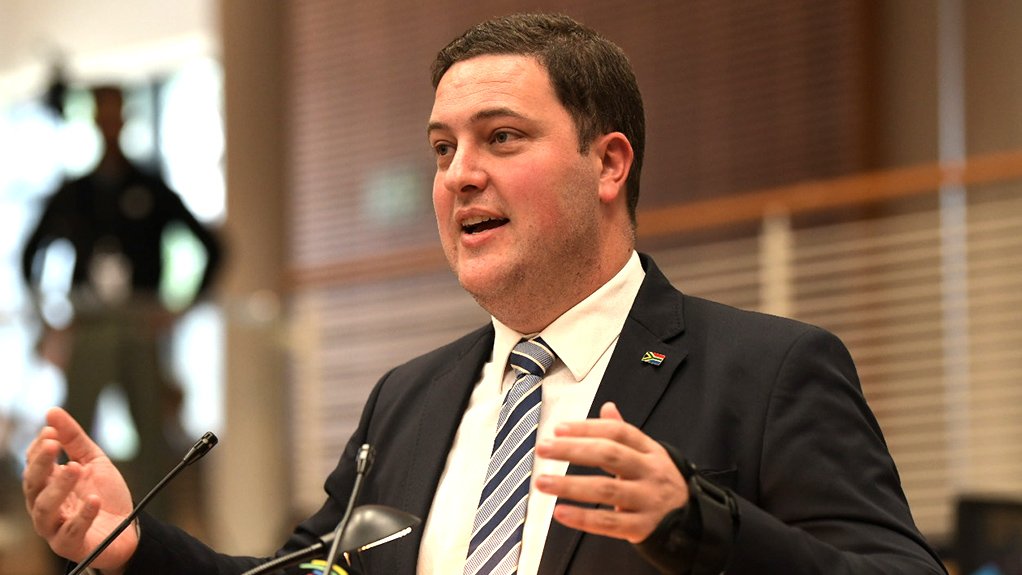The content on this page is not written by Polity.org.za, but is supplied by third parties. This content does not constitute news reporting by Polity.org.za.
On Thursday the Mayor of Cape Town will table the City’s draft budget for 2025/26. At first glance, the budget includes various new “fix charges” that the city calls “a reform to the current tariff structure”. These new charges highlight the consistent double standards imposed by the DA. The DA has opposed surcharges in Gauteng, arguing for fairness to its residents. But where the DA governs and has the to address these additional costs, the burden remains on residents.
Electricity increases by 9.32%
NERSA approved an increase of 12.74% for Eskom, which resulted in a corresponding municipal tariff increase of 11.32%. However, the average tariff increase for the City will amount to 9.32%, which is a full 2% lower than the approved Eskom increase to municipalities. This is good news.
However, we cannot forget that the City of Cape Town has charged above Nersa approved tariffs for the past two years. The City still awaits the outcome of the court case regarding its illegal overcharging and if it owes the residents a refund.
The Home User tariff applies to properties on credit meters and/or the value of the property is more than or equal to R1-million. Customers on the Home User tariff will see an increase of R94.86 in the Service and Wires Charge, resulting in an overall category average tariff increase of 2.85%.
The Domestic User tariff is applicable to properties on prepaid meters and the value of the property is more than R500,000 but less than R1-million. Domestic tariff customers will be subject to the newly-introduced Service and Wires Charge of R59.90, resulting in an overall category average tariff increase of 5.32%.
Lifeline customers require subsidisation, and as a result, these network costs are largely recovered from other residential customers. Lifeline customers will not pay the Services and Wires Charge.
Water and Sanitation
For 2025/26, two key changes have been made to the fixed portion of the Water and Sanitation tariff:
The water fixed charge will now be based on property values rather than the connection size of the pipe, providing noticeable relief for households at the lower end of the income spectrum, but not such good news for the higher value property owners. As an example, a R5-million property will now have an additional fixed charge of R548.87.
Non-residential customers will still be billed according to connection size.
The sanitation charge, which used to only be an estimated volumetric charge, will now also include a fixed portion.
Waste collection and cleaning increases by 7,36%
For 2025/26, city-wide area cleansing services will be funded by a new Cleaning Tariff, rather than from property rates. According to the City this is not an additional or new expense to customers, with the City claiming savings in electricity costs will fully buffer the financial impact of the introduction of the new City-wide Cleaning tariff.
Making Cape Town Safer
R6.7-billion will be allocated to the safety and security budget in 2025/26. As GOOD we question why the DA-led city continues to pour millions into reactive policing rather than focusing on prevention by addressing the root cause of crime. Despite costly initiatives year on year, crime levels remain high. Millions are spent on high-tech equipment with very little impact. The City of Cape Town are still rated as one of the top 10 most dangerous City’s in the world. And the National crime stats show Cape Town is home to the Top Station for reporting Murder (Mfuleni), the Top Station for reporting Contact Crime (Mfuleni), the Top Station for reporting Serious Crime (Cape Town Central).
Doing the Basics Better
The budget also includes the largest planned capital infrastructure investment budgeted at R12.7-billion. The City claims that this investment will create over 130,000 jobs (the same amount of jobs the previous budget of 2024/25 stated). The City has no systems in place to measure this target, so it seems odd the same amount has been copy-and-pasted from the previous budget.
Saying that the City of Cape Town has the largest Capital budget is great. However, it must be spent. Something this administration has failed to do every year. In the previous financial year 2024/25, the City underspent R1.6-billion of the Capital budget.
The budget includes upgrades to community facilities over three years, including:
o R123-million for sports facilities capital upgrades;
o R66-million for recreation hubs and community hall capital upgrades;
o R171-million for parks and public spaces capital upgrades;
o Over R191-million in library upgrades, equipment, books and subscriptions; and
o Over R95-million for community swimming pool operations and upgrades
What is clear from this draft budget is that the DA has chosen not to alleviate the financial strain on our communities. As the GOOD Party we will continue to scrutinise the draft budget and we encourage all residents and stakeholders to engage in the public participation process.
Issued by Anton Louw, GOOD City of Cape Town Councillor
EMAIL THIS ARTICLE SAVE THIS ARTICLE ARTICLE ENQUIRY
To subscribe email subscriptions@creamermedia.co.za or click here
To advertise email advertising@creamermedia.co.za or click here











